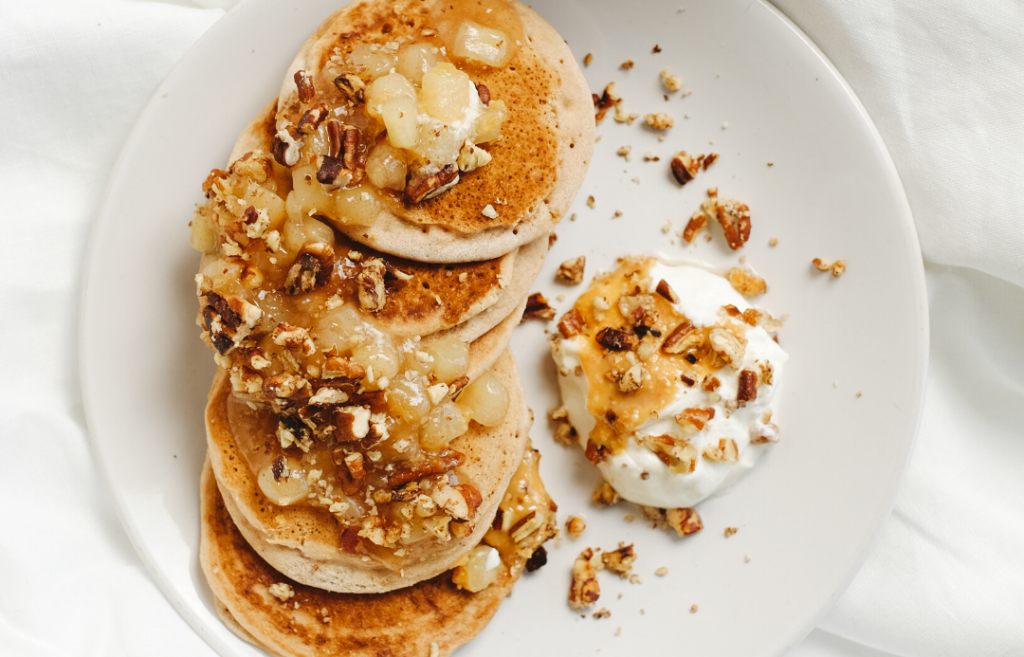Can I eat carbs and still lose weight?

One of the most common questions we get asked by new clients is whether to opt for a balanced macro-split or for a low-carb diet plan, especially if their goal happens to be weight loss.
“There’s no one size fits all when it comes to nutrition”
For a long time, society and advertising campaigns vilified dietary fats as a direct cause of weight gain. However, it seems that the nutritional changes imposed on us throughout the years as a result of this haven’t had the impact health professionals thought they would. So, we seem to have redirected the blame towards carbohydrates. But is there any sense behind this, and are carbs really bad for you?
Avoiding carbohydrates (or fat) doesn’t necessarily mean we’re eating healthily. Low carbohydrate diets, just as high carbohydrate diets, can be either healthy or unhealthy depending on the types of food we are consuming.
First of all, what are carbohydrates?
“Carbohydrates in the form of glucose are our body’s main source of energy.”
Carbohydrates are sugars that come in two primary forms.
- ‘Simple’ carbohydrates, or “simple sugars” and “starches, often referred to as ‘bad carbs’’, including fruit, syrups and sugars, often found in processed foods.
- ‘Complex’ carbohydrates, often referred to as ‘good carbs’, which include vegetables, grains, potatoes, beans and pulses.
What’s the difference?
The difference between a simple and complex carbohydrate is how quickly it is digested and absorbed, as well as its chemical structure.
Carbohydrates consumed, simple or complex, are metabolised into glucose. Glucose is the body’s main source of energy. Excess glucose is stored in the liver and muscles as glycogen and can be quickly converted back into glucose in times of need. However, we are unable to store large amounts of glycogen, and therefore excessive glucose will be converted and stored as fat.
Once we’ve metabolised carbohydrates into glucose, the glucose is absorbed into our bloodstream. Insulin monitors blood glucose levels and when our blood-glucose levels spike, insulin helps the body to restore it. Simple carbohydrates are more quickly absorbed into the bloodstream and will cause more significant spikes in blood glucose levels.
Many factors affect carbohydrate digestion and absorption, such as the food matrix and other foods eaten at the same time or in the same meal. For example, foods high in fibre will slow down the digestion of carbs. The same thing happens if we eat carbohydrates in combination with protein and fats. The rate of digestion is slowed, and furthermore, the glycaemic index (the rate at which carbohydrates can increase our blood-glucose levels) is reduced.
So, can I eat carbohydrates and still lose weight?
“A plan that contains moderate amounts of healthy carbohydrates like whole-grain foods, fruits, and vegetables is the best diet for long-term weight management.”
In terms of weight loss, avoiding carbohydrates may help you lose weight short-term, but it is likely to be mostly water-weight because when you eat them, your body stores more glycogen. For every gram of glycogen, you also store 3-4 grams of water. For some, cutting out carbohydrates can be a good way to kick-start weight loss, but the low-carb diet is hard to adhere to for a long period of time.
When choosing a low-carbohydrate diet, we don’t recommend you remove all carbohydrates from your diet.
A plan that still contains moderate amounts of healthy carbohydrates is the best diet for long-term weight management and health. Be sure to include a variety of sources including:
- Whole-grains (Brown Rice, Quinoa, Oats)
- Fruits (Apples, Bananas, Berries)
- Vegetables (Broccoli, Carrots, Kale)
- Legumes (Chickpeas, Lentils, Beans)
With an insufficient carbohydrate intake, you’re likely to miss out on essential nutrients such as:
- B-Vitamins
- Fibre
- Magnesium
- Selenium
…to name a few!
Low-carb worked for me last time, should I try again?
There’s still no one size fits all when it comes to nutrition, factors that address your health, your health goals, and your ability to change the way you eat need to be considered. At Fresh Fitness Food, we advocate finding a sustainable diet that works for you, which you can stick to for the long term. So instead of calling it a ‘diet’, it’s maybe better to refer to it as a ‘lifestyle change’.
To discuss which diet best suits your lifestyle, book a call with one of our in-house nutritionists now.
Georgia Head: Fresh Fitness Food Nutritionist

- The Comfort of Tradition: Why We Crave Holiday Foods - December 23, 2024
- Is There a Place for Ultra-Processed Foods in Your Diet? - November 29, 2024
- Tempeh and Quinoa Power Bowl Recipe - November 7, 2024